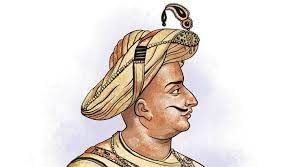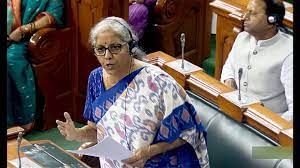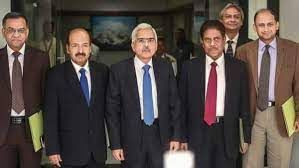UPSC Daily Current Affairs- 25th March 2023 | Current Affairs & Hindu Analysis: Daily, Weekly & Monthly PDF Download
GS-I
The Contested Legacy of Tipu Sultan and the Politicization of Historical Scholarship

Why in News?
Tipu Sultan, a historical figure who continues to fascinate people even today, had a powerful hold on the imaginations of the British during his reign. His afterlife in India has been more mixed, with conflicting views and interpretations from different communities and stakeholders. However, in the currently overheated State of Karnataka, the province of the historian has severely shrunk, yielding place to politicians and religious heads who now adjudicate historical truth.
Who was Tipu Sultan?
- Tipu was the son of Haider Ali, a professional soldier who climbed the ranks in the army of the Wodeyar king of Mysore, and ultimately took power in 1761.
- Tipu was born in 1750 and, as a 17-year-old, fought in the first Anglo-Mysore War (1767-69) and subsequently, against the Marathas and in the Second Anglo-Mysore War (1780-84).
- Haider died while this war was on, and Tipu succeeded him in 1782.
Tipu Sultan’s portrayal in England
- During his reign, Tipu Sultan was feared and envied by the British, who portrayed him as a formidable foe and used him as a metaphor in multiple art objects, skits, and plays.
- The pictorial versions of his defeat and death satisfied a very British need, asserting a badly dented British valour following decades of Mysore opposition to easy conquest.
Tipu Sultan’s afterlife in India
- Contested legacy: In 19th century Mysore, Tipu was admired for his firm stand against the British and for his efforts to prohibit the use of alcohol and drugs. However, in Karnataka today, the only story that can be told about Tipu is of his villainy and his opposition to Kannada and Hindus (and some Christians) alike.
- Politicization and suppression of viewpoints: The politicization of historical scholarship has resulted in conflicting interpretations and the suppression of certain viewpoints.
Admiration for Tipu Sultan
- Resistance against British colonialism: Tipu Sultan was known for his resistance against British colonialism and fought against the British East India Company in four Anglo-Mysore wars. He refused to accept British supremacy and formed alliances with the French to fight against them. His bravery and military tactics are admired by many.
- Agricultural and economic reforms: Tipu implemented several agricultural and economic reforms in his kingdom, including the introduction of new crops, irrigation systems, and the construction of roads and canals. These reforms helped to improve the agricultural productivity and the overall economic condition of his kingdom.
- Support for the arts and culture: He was a patron of the arts and culture and supported the development of literature, music, and architecture. He was known for his love for poetry and encouraged the development of the Urdu language.
- Use of new military tactics: Tipu Sultan is credited with pioneering new military tactics, including the use of rockets and iron-cased warships. His use of rockets in particular gave him an advantage over the British, who were initially unprepared for his tactics.
- Promotion of religious tolerance: Tipu Sultan abolished the jizya tax on non-Muslims and promoted interfaith dialogue and understanding. He had a diverse court that included Hindus, Muslims, and Christians, and he was known for his tolerance towards other religions.
Criticism of Tipu Sultan
- Religious policies: Tipu Sultan’s religious policies have been a subject of criticism, with some accusing him of being intolerant towards non-Muslims. He was known for his forced conversions of Hindus and Christians to Islam and the destruction of temples and churches. The destruction of the Sri Ranganathaswamy Temple in Srirangapatna, which is said to be carried out on Tipu Sultan’s orders.
- Treatment of prisoners of war: Tipu Sultan has been criticized for his treatment of prisoners of war, especially during the Third Anglo-Mysore war when he ordered the execution of several British prisoners.
- Oppression of certain communities: Tipu Sultan’s oppression of certain communities, including the Kodava people of Coorg and the Nairs of Kerala, has been a subject of criticism. He imposed heavy taxes on these communities and forced them to convert to Islam.
- Suppression of dissent: Tipu Sultan is known to have punished those who spoke out against his rule, including writers and poets. One example of this is the punishment of the poet Diwan Kurnool Srinivas, who was imprisoned and tortured for writing a satirical poem about Tipu Sultan’s rule.
Conclusion
The contested legacy of Tipu Sultan highlights the importance of protecting historical scholarship from politicization and using it to promote understanding and dialogue instead of being weaponized for narrow political gains. The conflicting views and interpretations of Tipu Sultan’s legacy demonstrate the need for a nuanced and multi-perspective approach to history.
Source: The Hindu
What are Micro Units Development and Refinance Agency (MUDRA) Loans?

Why in News?
The Central Government has recently made MUDRA loans given to joint liability group micro enterprises eligible for the Credit Guarantee Fund for Micro Units.
About MUDRA Loans:
- MUDRA Loan is offered under the Pradhan Mantri Mudra Yojana (PMMY).
- PMMY was launched in 2015 with the aim to help small-scale businesses expand and attain success.
- Support under the scheme: It provides loans of up to 10 lacks to non-corporate, non-farm small/micro enterprises.
- Purpose of loan: To start a new business, enhance existing or meet working capital requirements, and for business expansion purposes
- These loans are classified as MUDRA loans under PMMY.
- Eligibility: Any Indian Citizen who has a business plan for a non-farm sector income-generating activities such as manufacturing, processing, trading, or service sector.
- These loans are given by Commercial Banks, RRBs, Small Finance Banks, MFIs, and NBFCs.
- Types of loans:
- Shishu - Covering loans up to Rs 50,000;
- Kishor - Covering loans above Rs 50,000 and up to Rs 5 lakh;
- Tarun - Covering loans above Rs 5 lakh and up to Rs 10 lakh.
Source: The Hindu
GS-II
Lok Sabha clears forming GST Appellate Tribunal

Why in News?
The Lok Sabha passed Finance Bill, 2023 with some amendments, including one that seeks to set up the much-awaited GST Appellate Tribunal (GSTAT), which will deal with tax disputes.
What is GST Appellate Tribunal?
- The GST Appellate Tribunal is a quasi-judicial body proposed to be established to resolve disputes related to the Goods and Services Tax (GST) in India.
- It will function as an independent body to hear appeals against orders passed by the GST authorities or the Appellate Authority.
- The tribunal will be composed of a national bench and various regional benches, headed by a chairperson appointed by the central government.
- The proposed tribunal is expected to help expedite the resolution of disputes related to GST and reduce the burden on the judiciary.
Under GST, if a person is not satisfied with the decision passed by any lower court, an appeal can be raised to a higher court, the hierarchy for the same is as follows (from low to high):
- Adjudicating Authority
- Appellate Authority
- Appellate Tribunal
- High Court
- Supreme Court
Composition of GSTAT
- GSTAT will have a “Principal Bench” in New Delhi.
- It would have the President (probably a former Supreme Court judge), a judicial member, a technical member (centre), and a technical member (state).
- It will also have state benches.
- Appeals pertaining to disputes of less than Rs. 50 lakh that don’t deal with a question of law could be decided by a single-member bench, as per the norms approved by the GST Council.
Why need such Tribunal?
- Unburden judiciary: GST Appellate Tribunal will help resolve the rising number of disputes under the 68-month old indirect tax regime that are now clogging High Courts and other judicial fora.
- Improve the efficiency of GST System: Overall, the establishment of the GST Appellate Tribunal is expected to improve the efficiency and effectiveness of the GST system in India.
- Independent mechanism: The proposed Tribunal will provide an independent and efficient mechanism for resolving disputes related to GST.
- Avoid tax evasion: It will help to expedite the resolution of disputes, reduce the burden on the judiciary, and promote greater certainty and predictability in the GST system.
Issues with present litigation
- Compliance issues: The GST system is relatively new in India, having been implemented in 2017, and there have been several issues with compliance and interpretation of rules and regulations.
- Complex adjudication hierarchy: The current dispute resolution mechanism involves multiple layers of adjudication, starting with the GST officer and as mentioned above.
- Time-consuming process: This process can be time-consuming, costly, and burdensome for taxpayers, especially small and medium-sized enterprises.
Back2Basics: Finance Bill
- A Finance Bill is a proposed legislation that is introduced by the government to implement the financial proposals of the Union Budget for the upcoming financial year in India.
- It is a comprehensive document that outlines the government’s revenue and expenditure for the year, including changes in tax laws, tariffs, customs duties, and other fiscal measures.
- Since the Union Budget deals with these things, it is passed as a Finance Bill.
Types of Finance Bills
- There are different kinds of Finance Bills — the most important of them is the Money Bill. The Money Bill is concretely defined in Article 110.
- In India, there are three types of Finance Bills that can be introduced in the Parliament:
- Annual Finance Bill: This is the most common type of Finance Bill and is introduced by the government every year to give effect to the tax proposals announced in the Union Budget. It contains provisions related to taxation, expenditure, and revenue collection for the upcoming financial year.
- Finance Bill (Money Bill): A Money Bill is a type of Finance Bill that contains only provisions related to taxation and expenditure, but does not include any other matter. Money Bills are deemed to be passed by the Lok Sabha, the lower house of Parliament, and do not require approval from the Rajya Sabha, the upper house of Parliament.
- Finance Bill (Non-Money Bill): This type of Finance Bill contains provisions related to taxation and other matters, such as changes in the structure of regulatory bodies or the introduction of new policies. Unlike Money Bills, Non-Money Bills must be passed by both the Lok Sabha and the Rajya Sabha to become law.
How is money bill different from Finance Bill?
- A Money Bill is certified by the Speaker as such — in other words, only those Financial Bills that carry the Speaker’s certification are Money Bills.
- Article 110 states that a Bill shall be deemed to be a Money Bill if it contains only provisions dealing with all or any of the following matters:
- (a) the imposition, abolition, remission, alteration or regulation of any tax;
- (b) the regulation of the borrowing of money or any financial obligations undertaken
- (c) the custody of the consolidated Fund or the Contingency Fund of India, the payment of moneys into or the withdrawal of moneys from any such Fund;
- (d) the appropriation of moneys out of the consolidated Fund of India;
- (e) the declaring of any expenditure to be expenditure charged on the Consolidated Fund of India or the increasing of the amount of any such expenditure;
- (f) the receipt of money on account of the Consolidated Fund of India or the public account of India or the custody or issue of such money or the audit of the accounts of the Union or of a State; or
- (g) any matter incidental to any of the matters specified in sub clause (a) to (f)
Source: The Hindu
What is the Unlawful Activities Prevention Act (UAPA)?
Why in News?
The Supreme Court of India recently ruled that mere membership in an unlawful association is sufficient to constitute an offense under the stringent provisions of the Unlawful Activities Prevention Act (UAPA), 1967.
About Unlawful Activities Prevention Act (UAPA):
- The UAPA was enacted in 1967.
- It lays down the definitions and rules for designating an organization as an "unlawful association" if it is engaged in certain types of activities.
- ‘Unlawful activity’ is defined as any action taken by an individual or association – through an act, words, spoken or written, or by signs or visible representation – which is intended to, or supports a claim to, bring about the cession of a part of the territory of India, or the secession of a part of the territory of India from the Union, or which incites any individual or group of individuals to bring about such cession or secession.
- It covers activities which disclaim, question, disrupt or are intended to disrupt the sovereignty and territorial integrity of India, and which cause or intend to cause disaffection against India.
- In 2004, the UAPA was amended, and 'terrorist activities' were brought within its fold, under which 34 outfits, including the Lashkar-e-Taiba and the Jaish-e-Mohammad, were banned.
- Under the Act, the central government may designate an organization as a terrorist organization if it:
- commits or participates in acts of terrorism;
- prepares for terrorism;
- promotes terrorism;
- is otherwise involved in terrorism;
- The 2019 Amendment gave the Home Ministry the power to designate individuals as terrorists.
- The Act extends to the whole of India.
- It also applies to citizens of India who are abroad, persons in service of the Indian government, and persons on ships and aircraft registered in India.
Source: Indian Express
GS-III
Monetary Policy Committee (MPC)

Why in News?
The Reserve Bank of India (RBI) recently announced that its rate-setting panel, the Monetary Policy Committee (MPC), will meet six times in the next financial year (FY24).
About Monetary Policy Committee (MPC):
- The Reserve Bank of India Act, 1934 (RBI Act) has been amended by the Finance Act, 2016 to provide for a statutory and institutionalized framework for a MPC.
- Under Section 45ZB of the amended RBI Act, 1934, the central government is empowered to constitute a six-member MPC.
- Function: The MPC is entrusted with the task of fixing the benchmark policy rate (repo rate) required to contain inflation within the specified target level.
- Composition:
- MPC will have six members - the RBI Governor (Chairperson), the RBI Deputy Governor in charge of monetary policy, one official nominated by the RBI Board, and the remaining three members would represent the Government of India.
- The external members hold office for a period of four years.
- The quorum for a meeting shall be four Members, at least one of whom shall be the Governor and, in his absence, the Deputy Governor, who is the Member of the MPC.
- The MPC takes decisions based on a majority vote. In case of a tie, the RBI governor will have the second or casting vote.
- The decision of the MPC would be binding on the RBI.
Source: Live Mint
Exercise Konkan, 2023
Why in News?
Ex Konkan, the annual bilateral maritime exercise between the Indian Navy and the Royal Navy, was recently held off the Konkan coast in the Arabian Sea.
Exercise Konkan 2023
- Konkan exercise is the annual bilateral maritime exercise between the Indian Navy and the UK’s Royal Navy.
- INS Trishul, a guided missile frigate, and HMS Lancaster, a Type 23 guided missile frigate, participated in this edition.
- They undertook multiple maritime drills to enhance interoperability between the two forces and imbibe best practices.
- The exercises covered all domains of maritime operations, air, surface, and sub-surface.
- It included gunnery shoots on the surface inflatable target ‘Killer Tomato’, helicopter operations, anti-air, and anti-submarine warfare drills, Visit Board Search and Seizure (VBSS), ship maneuvers, and exchange of personnel.
- The exercise will help the Indian Navy and Royal Navy work together to improve maritime security and maintain a rules-based order in the region.
Source: PIB
|
38 videos|5258 docs|1111 tests
|
FAQs on UPSC Daily Current Affairs- 25th March 2023 - Current Affairs & Hindu Analysis: Daily, Weekly & Monthly
| 1. What is the significance of GS-I in the UPSC exam? |  |
| 2. What are the important topics covered in GS-II of the UPSC exam? |  |
| 3. What does GS-III in the UPSC exam cover? |  |
| 4. Why is it important to stay updated with daily current affairs for the UPSC exam? |  |
| 5. How can one effectively prepare for the GS-I, GS-II, and GS-III papers in the UPSC exam? |  |























